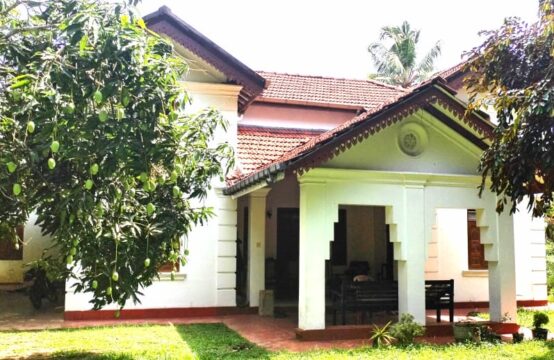FAQ
- Property rental process
-
Renting property in Sri Lanka involves two main types of agreements: Tenancy Agreements and Lease Contracts, each governed by different legal principles. Additionally, the applicability of the Rent Act significantly affects the terms, rights, and responsibilities of landlords and tenants.
Key Legal Framework:
1. The Rent Act:
•Governs most rental agreements in Sri Lanka, but with specific exceptions (detailed below).
•Generally, the law under the Rent Act favours tenants, imposing restrictions on landlords.
2. Exceptions to the Rent Act:
Properties not governed by the Rent Act include:
•Residential properties occupied by the owner as of January 1, 1980, and let since.
•Business premises constructed after January 1, 1980.
•Properties used by foreign individuals or companies under specified conditions.
•Premises exceeding certain annual value thresholds or owned by companies.
Types of Agreements:
1. Tenancy Agreement
•Non-Fixed Term:
•Typically informal; may or may not be written.
•Can be terminated by either party with at least one month’s notice.
•If disputes arise, eviction requires legal intervention.
•Without the Rent Act:
•Terms (e.g., rent, deposit, payment methods) are freely negotiated.
•Not subject to taxes or fines, unlike lease contracts.
•Advisable to use notary services for greater legal security.
•With the Rent Act:
•Rent is fixed based on state-assessed property value.
•Provides stronger tenant protections; landlords can only terminate contracts for specific reasons, such as:
•Late rent payment (over one month).
•Illegal/immoral use of premises.
•Significant property damage.
2. Lease Contract
•Fixed-Term Agreement:
•Provides more security for both parties.
•Must be written and signed in front of two witnesses and a notary.
•Requires registration at the Land Registry to protect the tenant legally.
•Without the Rent Act:
•Terms are freely negotiated, including rent and deposit amounts.
•With the Rent Act:
•Deposits cannot exceed three months’ rent.
•Additional payments (e.g., gratuities or commissions) are prohibited.
•A Certificate of Conformity is mandatory to prove lawful occupation of the premises.
Practical Considerations:
Rental Deposits & Agreements
Regardless of the governing law:
•Key Terms to Address in Contracts:
•Security deposit and refund conditions.
•Payment terms and responsibilities for repairs/rates.
•Inventory of goods (if furnished).
•Mutual obligations of landlord and tenant.
•Termination:
•Standard notice period is one month.
Legal Safeguards for Tenants:
•Always ensure agreements are officially documented.
•Engage a lawyer to verify property ownership and legal status.
•Verify property documentation, including the Certificate of Conformity.
Foreign Tenants:
•Additional precautions are advisable to avoid scams, including hiring legal experts to check for encumbrances and legal ownership.
Summary
The rental process in Sri Lanka varies significantly based on the type of agreement and whether the property falls under the Rent Act. Tenancy agreements offer flexibility but less security, while lease contracts provide structured, fixed-term arrangements. Understanding the applicable legal framework ensures that both landlords and tenants can negotiate terms effectively and protect their rights.
Property Search
Trending PROPERTIES
Latest News
Business and financial news in Sri Lanka
By Divya Thotawatte Set overlooking the sweeping southern coastline, Anantara Peace Haven Tangalle Resort recently unveiled the Peace Haven Bungalow,…
Unveils Vibrant National Pavilion at Arabian Travel Market 2025 On April 28, 2025, the Sri Lanka Tourism Promotion Bureau (SLTPB)…
NKAR, a well-established name in the tourism industry for over 45 years, continues to set itself apart with its innovative…
Boutique Hospitality with a Purpose: Nestled along the golden shores of Mirissa, Reveal the Collection isn’t just a sanctuary of…



